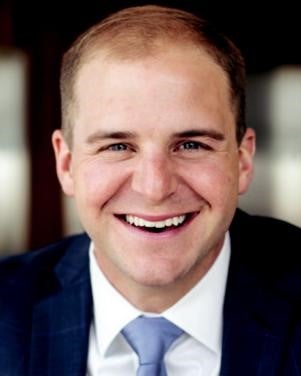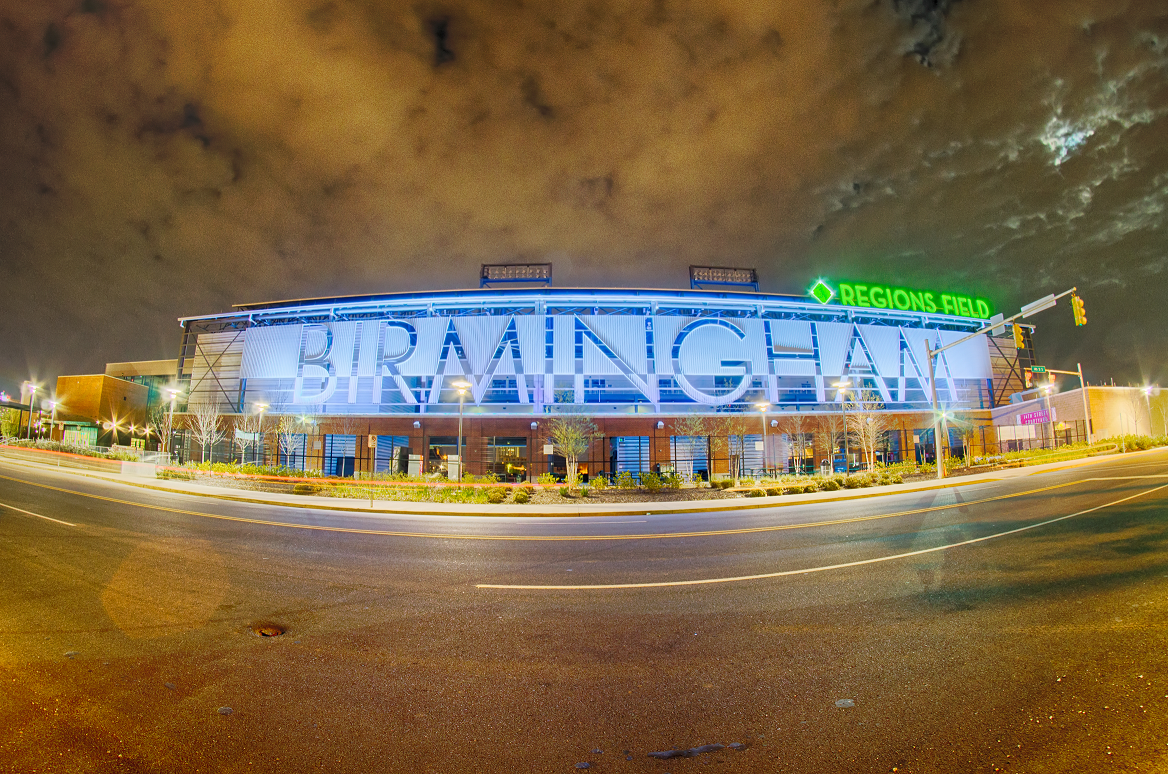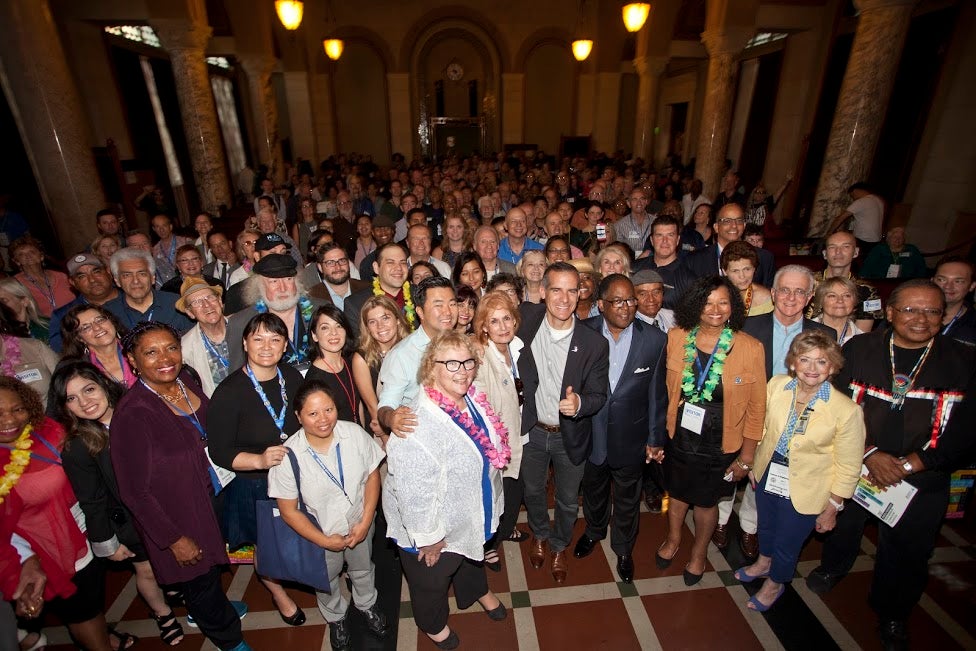Josh Carpenter is the Director of the newly formed Department of Innovation and Economic Opportunity for the City of Birmingham. Formerly, Josh was Director of External Affairs in the Office of the President at the University of Alabama at Birmingham (UAB), where he worked on strategic projects at the intersection of community engagement and economic development, spearheading a city wide partnership to secure $6 million to train disconnected youth for high-demand IT jobs. The stories he shares in this interview reflect his experience at UAB.
This interview is part of the Aspen Institute Center for Urban Innovation’s series of conversations with inclusive innovation practitioners.
Jennifer Bradley: How do you define civic engagement?
Josh Carpenter: We define civic engagement as a university as meaningful and mutually beneficial contributions to the public good. What’s most important to us is this notion of mutually beneficial. Particularly for institutions of higher education, there is the serious task of closing the power distance between the institution and the people that we often serve.

We are trying to identify where we can build bridges between our institution as a university and as an academic medical center where we need the community as much as the community needs us.
JB: Say a little bit more about how you need the community.
JC: As an academic research university, we have to find solutions to issues like high obesity and diabetes rates, but we can only do studies with the people who actually are experiencing them. They work with our physicians and we work with them to understand what might be affecting that over time.
But the other examples are social ills, whether it’s poverty or social mobility. Things we study as an institution require a greater and deeper understanding of what is actually affecting people’s lives and their behavior. Too often data, data points, and large data sets are just that, they’re just data. They’re not a realistic portrait of actual individuals that carry them through time. We need people to better understand the things that we want to solve and to be the best version of our self as an institution.
JB: Why does civic engagement matter?
JC: In a place like Birmingham, race and racial tension has defined its history, and division is what is most known. We lose the fact that we were at our greatest as a community when we unclenched our fists, as President Obama said in his inaugural address, and reached out and grabbed other folks, and brought them into our circle whatever that may be, and tried to bridge great divides in our community. Civic engagement is important because ultimately it’s the best version of every single person in the community. Most people just want to be known and understood more effectively, and engaging with other people often allows us to learn things we didn’t know. It sounds so basic, but it’s real. We can live in these customized communities that have allowed us to be around people who look, and feel, and act like us. That’s not living a fulfilled or complete life in my view.
We need people to better understand the things that we want to solve and to be the best version of our self as an institution. [/quote_embed]
JB: Where is civic engagement most difficult, and how do you deal with that?
JC: I think it’s most difficult in areas where we failed people before.
The other day someone said to me, “Hey, it’s great what you’re doing to train young people, but what about the hundreds and maybe thousands of people who have been laid off from their jobs and they’re middle-aged workers, and they have nowhere to go, and they have no health insurance?” I just looked at that person and said, “We’re failing you, and I don’t have an answer for you yet.” That’s hard for me to say, but it’s disingenuous for me to say anything else. The hardest part is when you fail people and you don’t see a way forward. We have to admit that we don’t have answers until we find them, and not overpromise and under-deliver.
[quote_embed]I think that we’re going to find that as we engage more often with the community and we understand their problems more effectively, the understanding and the solutions that we co-create can actually help our bottom-line. [/quote_embed]
JB: Tell me about a time that civic engagement led to a surprising outcome, and then what happened next.
JC: This is a story that I really love to tell. When we decided to do the Innovate Birmingham workforce program, it wasn’t just that we wanted to feel good and fulfill our community mission or our education mission. There was a shortage of talent, and we felt that it was our role as an education institution to train people to help the local economy.
One of the people who graduated from the first class had previously dropped out of our university because tuition is tough, and he didn’t have any scholarship options. So he drops out in December of 2016. Our program starts in February of 2017. He graduates with a new certificate in May of 2017, and then gets employed by the institution that he had to drop out of as the Help Desk Support Specialist in May of 2017. And then, in the fall of 2017 he re-enrolls, but this time he benefits from having a tuition assistance program where we pay half his tuition.
This was otherwise going to be a student who just would not have finished college, certainly wouldn’t have finished at UAB. In pure economic terms, that’s lost tuition. I didn’t anticipate when we started this program that there would be a lot of young people who would take advantage of it and come back to UAB. I think that we’re going to find that as we engage more often with the community and we understand their problems more effectively, the understanding and the solutions that we co-create can actually help our bottom-line.
JB: How do you measure success?
JC: We are listening to the people with whom we want to engage. We are bending our outcome metrics on engagement to focus on priorities that we’re co-creating with neighborhoods, civic leaders, grassroots, and grass-tops, and identifying needs that we feel like we’re uniquely capable of addressing.
We don’t have hard-core metrics yet, but we’ll probably have them in the next six months, and they will be based on economic opportunity outcomes because we have heard from the community that that is the most important thing we can deliver.
[quote_embed]The timeline that we’re so accustomed to for so many other aspects of our life doesn’t lend itself to civic engagement, and the type of messiness that it often entails.
JB: Is there anything else that you think I should know, anything that the questions didn’t capture that you want to convey about civic engagement?
JC: It takes patience and trust to build relationships and be in places without necessarily having an outcome, and to recognize when you don’t know something. I think about that Nikki Giovanni quote where she says, “I hope that a white person doesn’t write my biography because they’ll talk about how hard my childhood was, but they won’t know that all the while I was quite happy.”
It requires patience [to change] the way institutions deploy resources and expect a quick return on that investment, and patience from members of the community who need to understand that yeah, not only do we not know what we’re talking about, we don’t know that we don’t know what we’re talking about a lot of times, and we’re going to need help. That unfolding relationship is so important, and it requires building trust, a lot of vulnerability, and a whole lot of failure, and that’s really hard in a world that expects quick wins and quick returns. The timeline that we’re so accustomed to for so many other aspects of our life doesn’t lend itself to civic engagement, and the type of messiness that it often entails.
The phrase “dwelling in tension” really resonates when I think about civic engagement because people come into it with very entrenched ideas, in a formulaic sort of, “Let’s do some focus groups, let’s do some surveys, and then we get some metrics.” That’s attractive to someone like me who is bent on operations. But then, there is a human side that says, “Actually it’s more than just what you can count. It’s how people unfold and how communities feel empowered, disempowered.” And those are more difficult to measure.
Dwelling in tension is hard because we’re all predisposed to be an anthropologist or an economist. You need to speak both languages. You need to be realistic and authentic enough to say, “I don’t know it all, and I’m here to help humans, and that’s why I started this work.” But you also have to say, “We’ve got to know where we are, and to do that we have to measure something.” We may change the measures down the line, and we may recognize they were wrong. But lets at least start putting some things down on paper as we plod forward.
This interview has been edited and condensed for clarity.
This blog series is supported by the Citi Foundation, a vital early supporter of the Center for Urban Innovation at the Aspen Institute. With the Citi Foundation’s help, the Center convened leading-edge practitioners to develop a shared set of principles to guide a cross-sector approach to inclusive innovation in low- and middle-income neighborhoods, and to determine how the Aspen Institute could support this practice.


